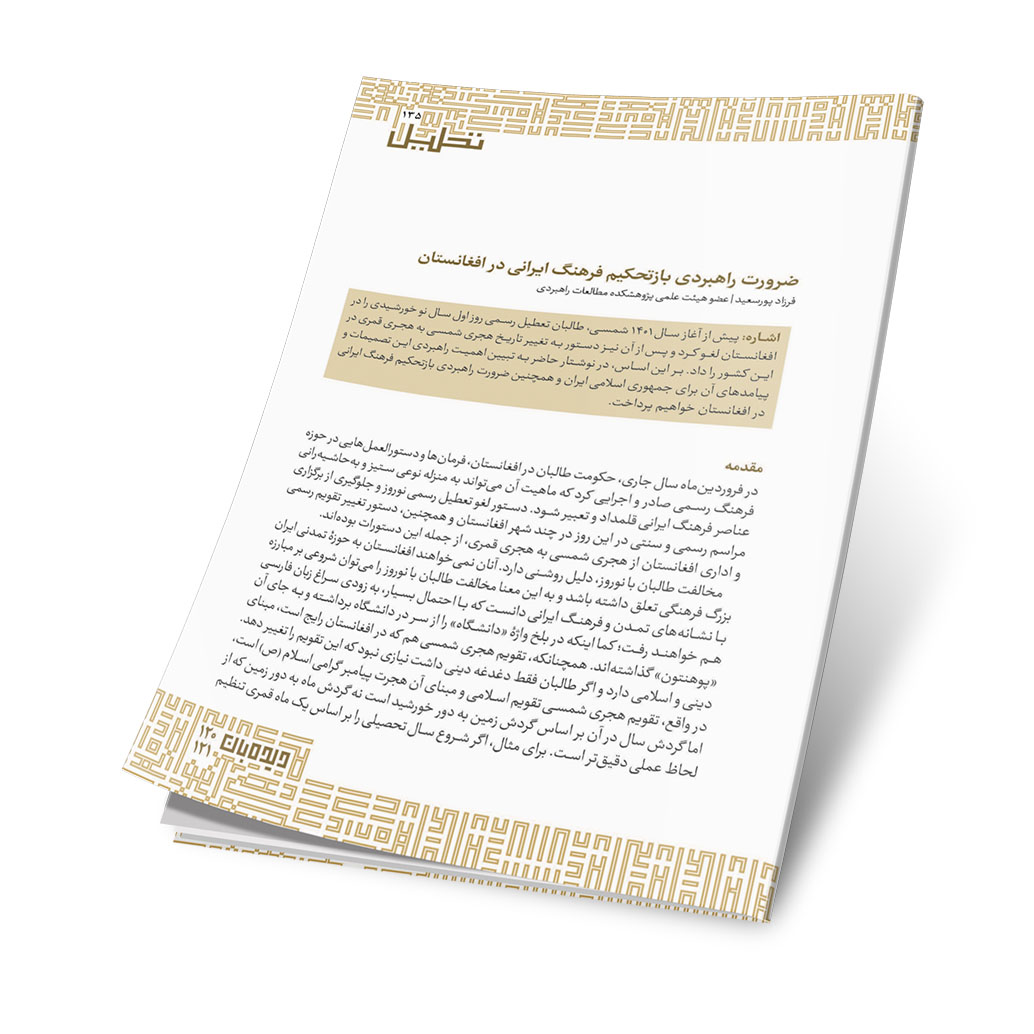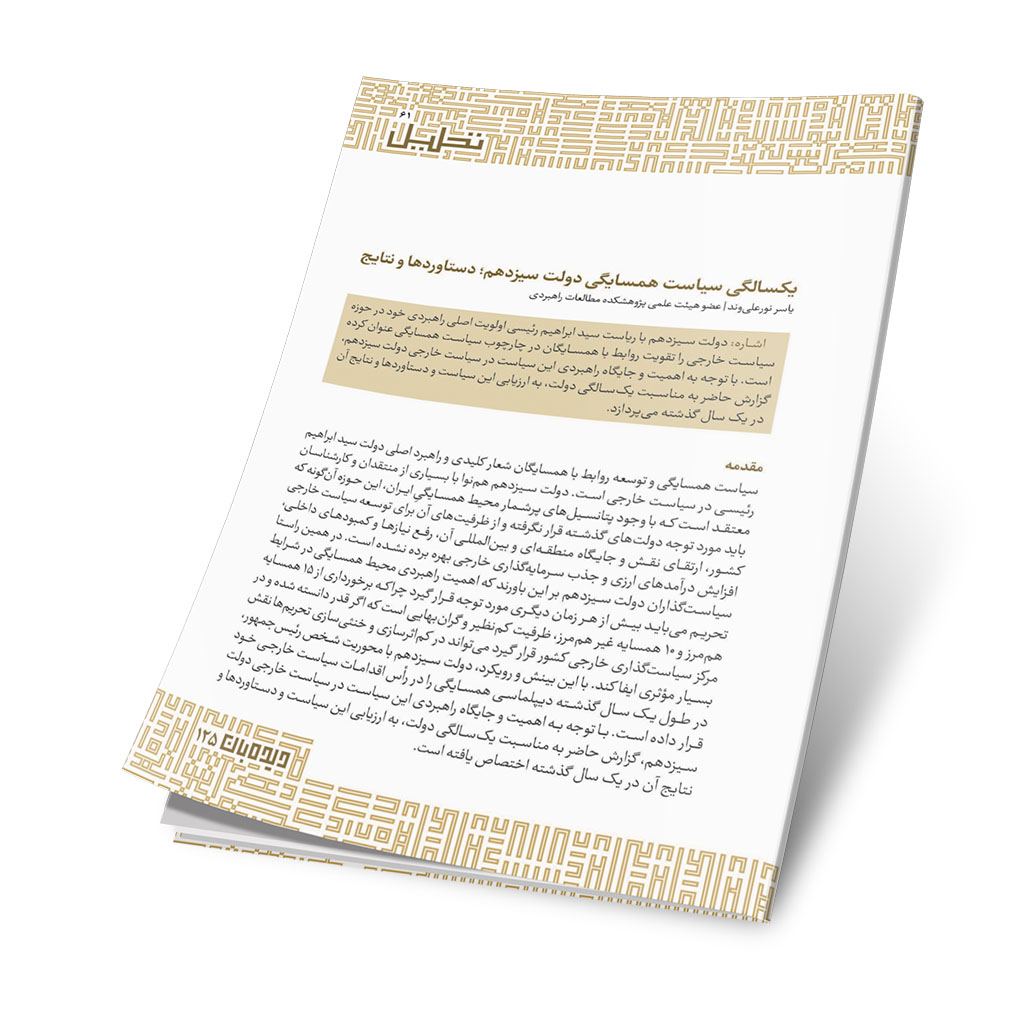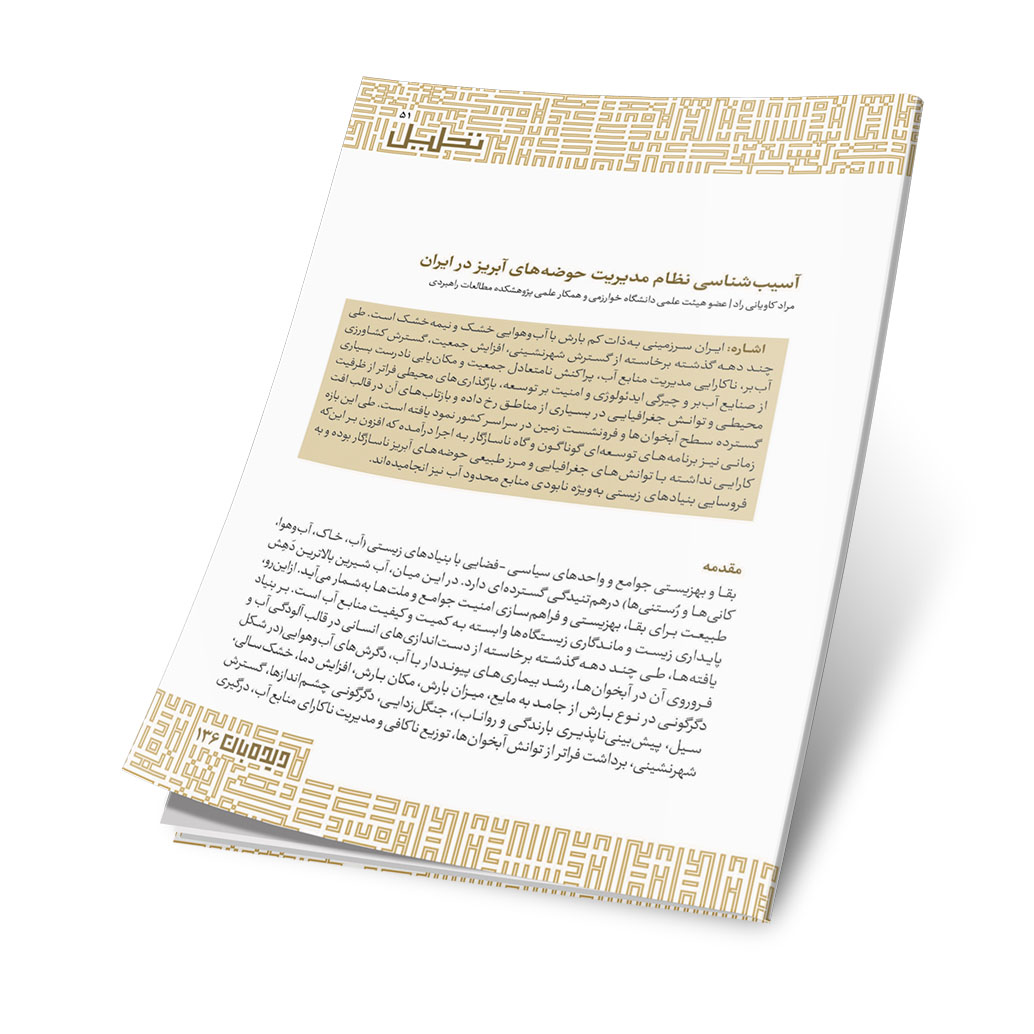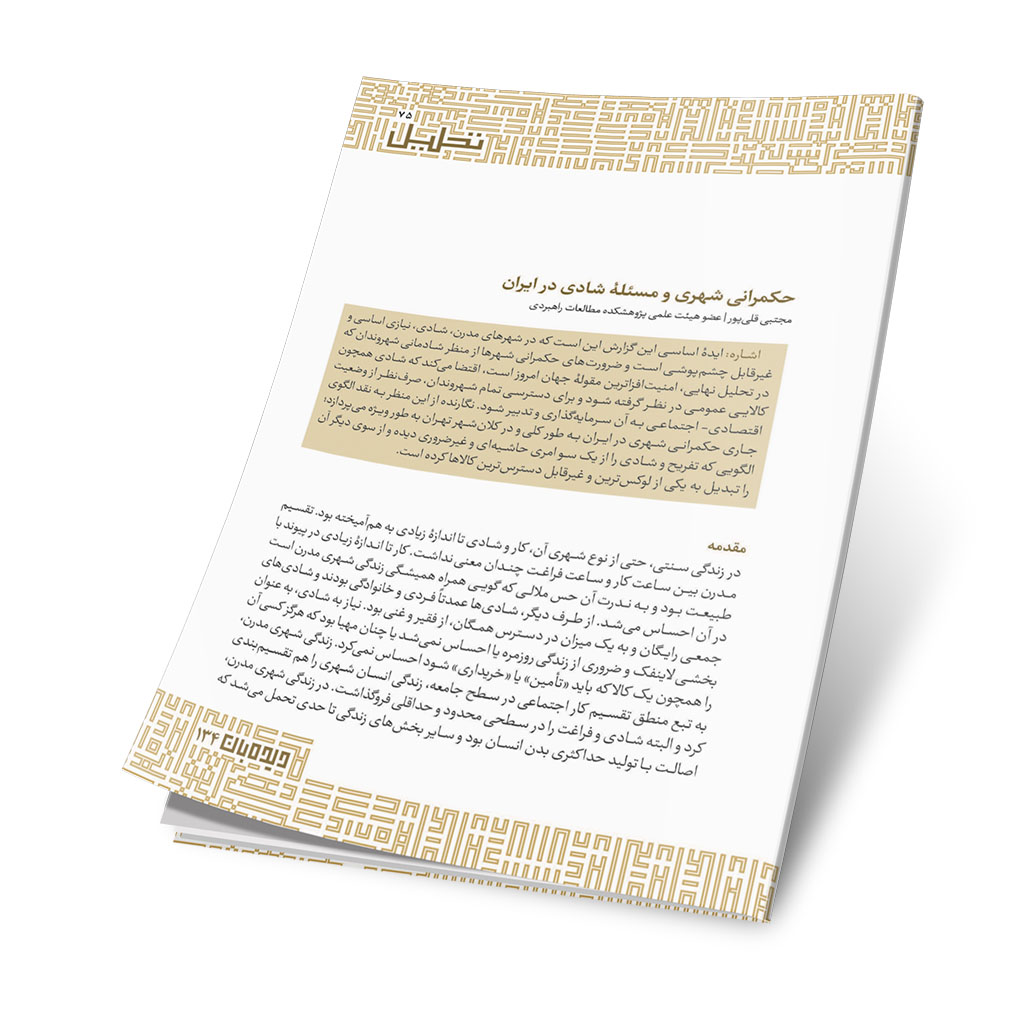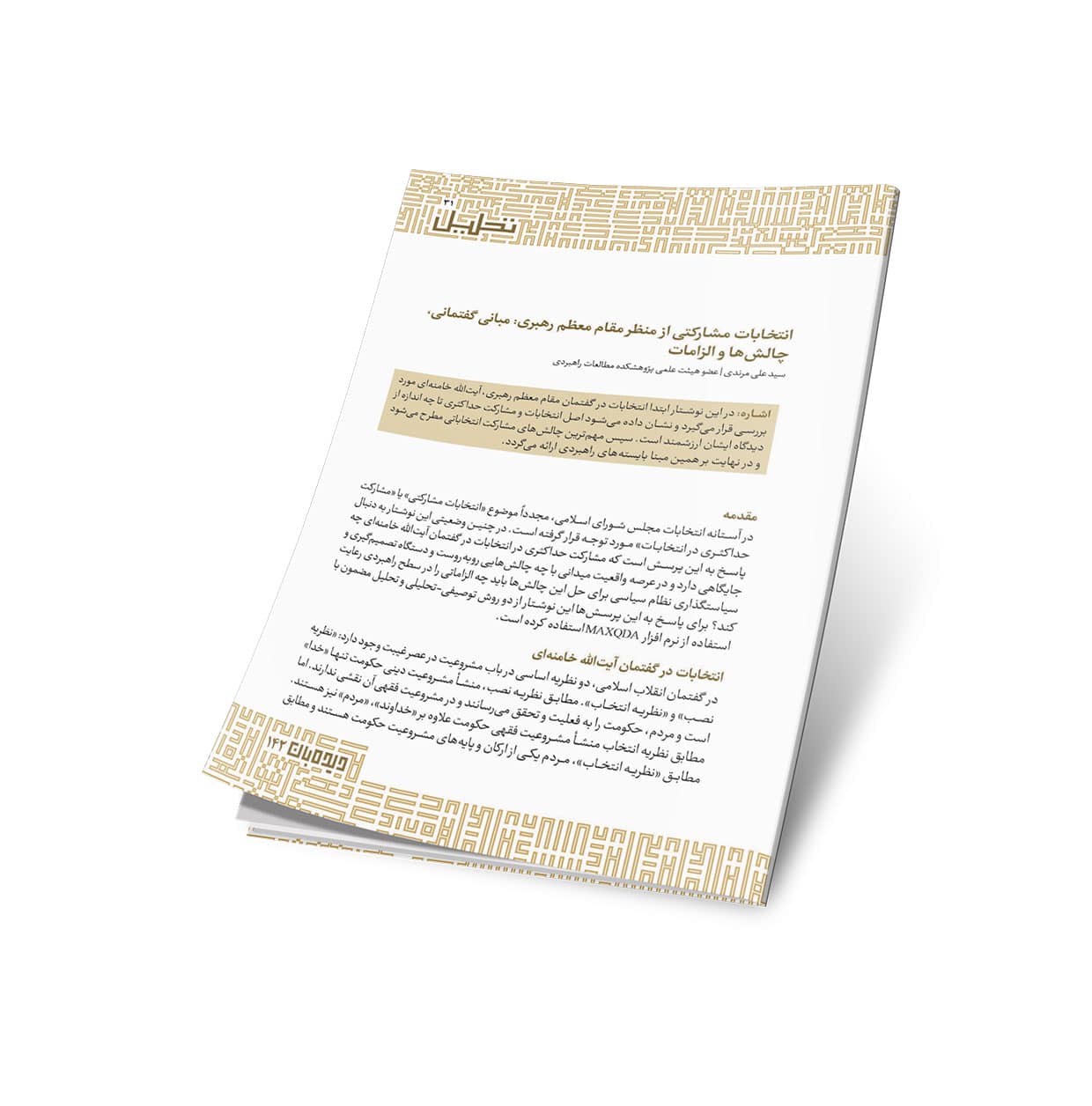ماه نگارمقالات ماه نگار
امنیتیسازی جمهوری اسلامی ایران در جامعۀ بینالمللی: اهداف و سازوکارها
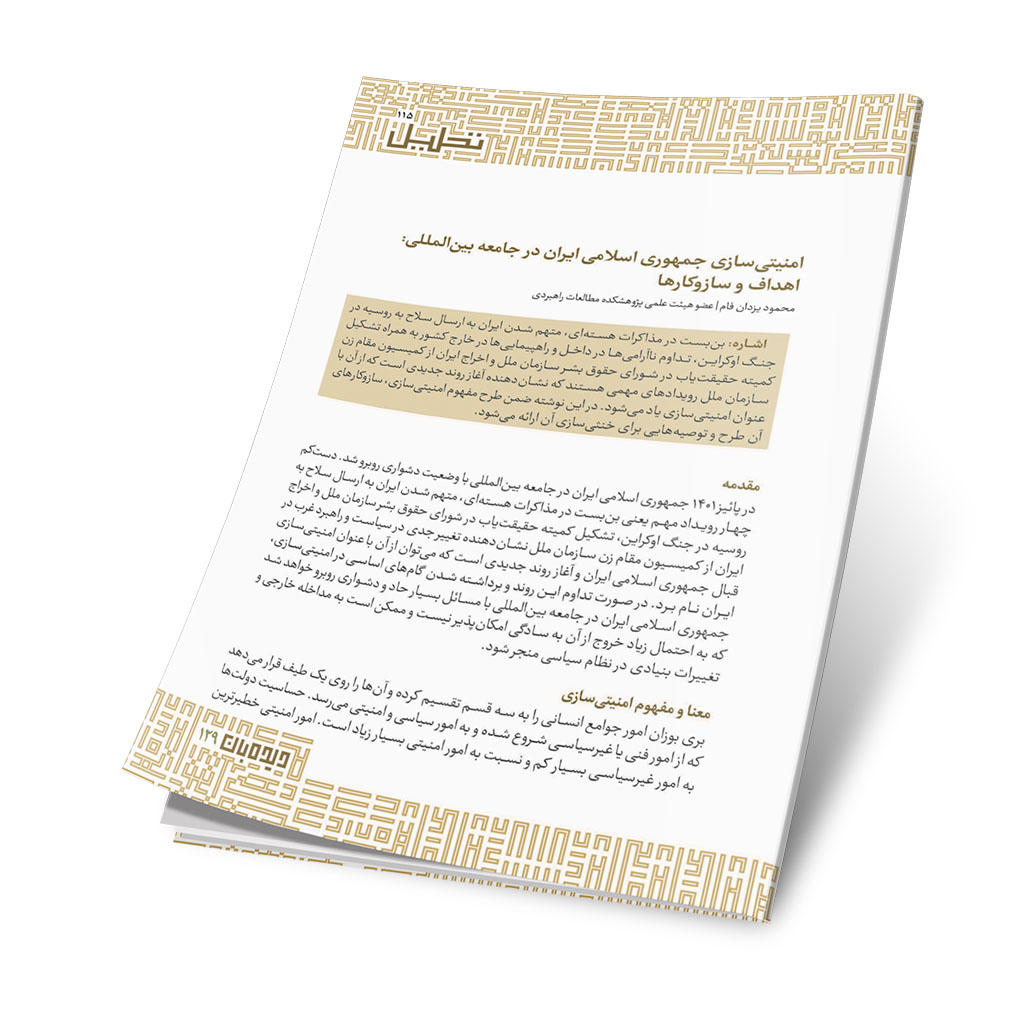
نویسنده: محمود یزدانفام
بنبست در مذاکرات هستهای، متهم شدن ایران به ارسال سلاح به روسیه در جنگ اوکراین، تداوم ناآرامیها در داخل و راهپیماییها در خارج کشور به همراه تشکیل کمیته حقیقتیاب در شورای حقوق بشر سازمان ملل و اخراج ایران از کمیسیون مقام زن سازمان ملل رویدادهای مهمی هستند که نشاندهنده آغاز روند جدیدی است که از آن با عنوان امنیتیسازی یاد میشود. در این نوشته ضمن طرح مفهوم امنیتیسازی، سازوکارهای آن طرح و توصیههایی برای خنثیسازی آن ارائه میشود.
ماهنگار دیدهبان امنیت ملی شماره ۱۲۹ – ۱۲ صفحه از صفحه ۱۱۵ تا ۱۲۶

